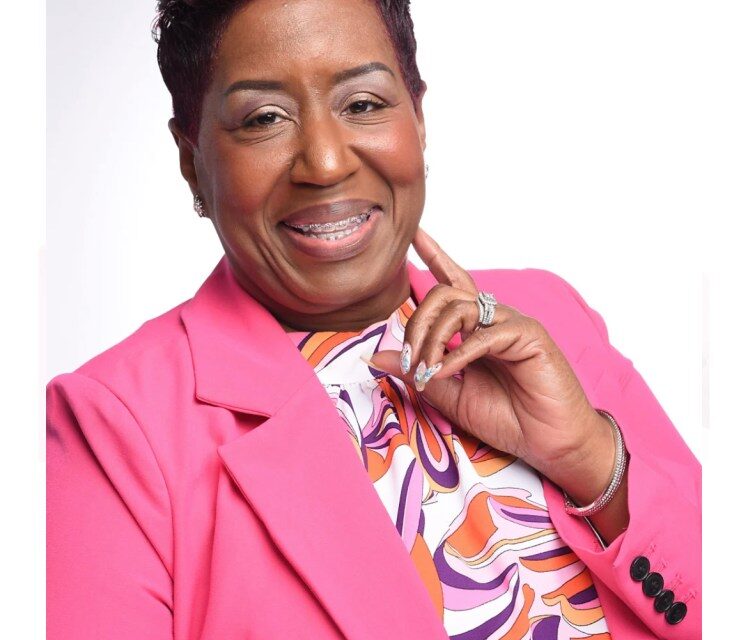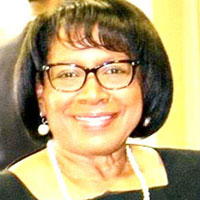By Megan Sayles,
AFRO Business Writer,
msayles@afro.com
Before becoming an entrepreneur, Dr. Toni Boulware-Stackhouse spent more than 20 years working with unhoused populations. The Baltimore native worked in homeless services for several organizations, like Catholic Charities and St. Vincent de Paul of Baltimore. She also saw the effects of housing insecurity first hand as she managed area shelters.
In every role, Boulware-Stackhouse recognized how often mental health problems contributed to people experiencing homelessness.
“Throughout my 25 year career, one thing has remained consistent in working with this population of people, and that is that people experience trauma and are never able to recover from it, mentally or physically. That’s been part of the catalyst that has kept them in the cycle of homelessness,” said Boulware-Stackhouse. “I determined that I wanted to do something to change that.”
In 2020, the counseling psychologist opened Life Matters Wellness, a counseling practice that takes a holistic approach with clients to treat the entire person.
“There are a number of people that remain stable in housing and their careers, and they do experience mental and emotional problems,” said Boulware-Stackhouse. “The difference is the people experiencing the recurring cycle of homelessness do not know how to manage the mental and emotional symptoms that they experienced as a result of life’s crises.”
Through its holistic approach, Life Matters Wellness addresses clients’ physical, mental, spiritual and emotional concerns. In addition to counseling services, the practice analyzes how diet, exercise routines and spirituality can impact mental health.
Life Matters Wellness offers family, individual and couple therapy, trauma treatment, grief counseling and premarital counseling.
“Each treatment plan that we develop for our clients is individualized for the needs of that client. Initially, the majority of people who come to seek therapy are doing so because of a crisis or problem,” said Boulware-Stackhouse. “We want to help them resolve their problem from an empowerment approach.”
According to Boulware-Stackhouse, mental health treatment is often stigmatized in the Black community. African Americans are often encouraged to keep their mental battles a secret.
She thinks the COVID-19 pandemic spurred more conversations about mental health, particularly in Black faith communities, but there is still progress to be made in erasing the stigmas.
“[African Americans] have dealt with a whole lot of secrets. We don’t tell this and we don’t tell that, but now we see it has hurt our people,” said Boulware-Stackhouse. “We come from a culture where we tell our boys growing up that they can’t cry. African-American women believe that they have to keep going and making things happen.”
She believes the key to reducing the stigmas is normalizing therapy and greater transparency from individuals who are already receiving mental health treatment.
Improving cultural competence, the ability to understand and respect values and beliefs across different cultures, is also critical to gaining more participation in therapy from minorities.
“I’ve had a number of African-American people come to me and say, ‘I’ve tried therapy, and I don’t feel like my therapist understood me. I had to do a lot of explaining about why I felt a certain way because there was no context, and it made me feel bad,’” said Boulware-Stackhouse.
“It’s the counselor’s responsibility to make sure that they are culturally-competent.”
Sometimes, it can take time for African Americans to find a therapist they feel comfortable with. They also face a pool of therapists in which only 4 percent identify as Black, according to the American Psychological Association.
“The workforce is much more diverse than it was nearly forty years ago but sadly, due to COVID and practitioner burn-out among other things, the workforce is not as diverse as we would like in 2023,” said Andrea Brown, executive director of the Black Mental Health Alliance. “We need more Black men in the pipeline and more Black women.”
“The lingering stigma in the Black community and the lack of culturally-ground therapists are both impediments to treatment for the Black community,” Brown added.
Boulware-Stackhouse said that as an African-American woman, solely being culturally-responsible for her community doesn’t suffice. Instead, she is constantly educating herself about other cultures to better serve clients.
“We want people to know that their lives matter, even if their circumstances or people have made them think otherwise,” said Boulware-Stackhouse. “We are partnering with people so that they can become emotionally and mentally well.”
Megan Sayles is a Report for America Corps member.
#mentalhealth #Blackbusiness #counseling
Related Articles:
The post Life Matters Wellness: treating the whole person with holistic counseling services appeared first on AFRO American Newspapers .











